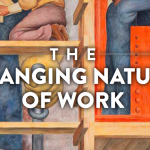Why saying ‘thank you’ isn’t as vital as we think

New research from the University of Sydney has found people around the world usually don’t say ‘thank you’ when someone fulfils a simple request. The findings suggest there is an unspoken willingness by most people to cooperate with others.
The research, published in Royal Society Open Science, examined almost 1000 examples from informal, everyday conversations between friends, families and neighbours in eight different languages.
“Our findings indicate a widespread assumption that saying ‘thank you’ is not necessary in the everyday contexts of our lives,” said Professor Nick Enfield from the Department of Linguistics, who led the research.
Professor Enfield and seven international collaborators provided source material from Cha’palaa in Ecuador, English in the UK, Italian in Italy, Lao from Laos, Murrinhpatha in Northern Australia, Polish from Poland, Russian from Russia and Siwu from Ghana.
The research is part of a larger investigation of language and social interaction featuring collaboration from eight international academics.
“When people think of social norms around gratitude, they naturally think about our interactions in formal settings, where it seems standard to say ‘please’ and ‘thank you’,” said Professor Enfield.
“But in in our homes and villages – where our interactions would seem to matter most – we find people dispense with these niceties almost entirely.”
Across the majority of the eight languages examined, thanks were given in only one out of fifty occurrences.
The lowest frequency was among Cha’palaa speakers, who never said ‘thank you’ after someone met their requests.
“Some might interpret this as a crisis of rudeness, that we are polite in public but have no manners in our own homes. But that is the wrong interpretation. Instead, it demonstrates that humans have an unspoken understanding we will cooperate with each other.”
The researchers found significantly higher rates of gratitude expressed among English and Italian speakers. Those whose first language is English or another Western European language were outliers, not representative of the diversity of the world’s languages and cultures.
“Everyday life works because it’s in our nature to ask for help and pay back in kind, rather than just in words,” said Professor Enfield.
The study was coordinated by Simeon Floyd of the Universidad San Francisco de Quito in Ecuador and Giovanni Rossi of the University of Helsinki and UCLA.








